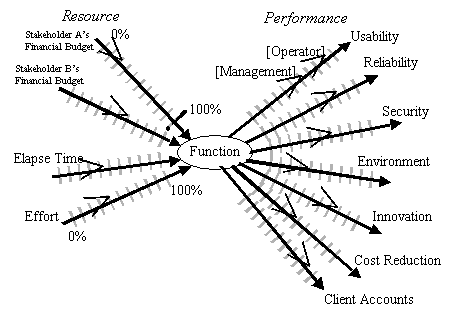The trouble with feedback
I have mixed feelings about feedback. In my own life I have grown tremendously by accepting direct feedback from people I trust and respect. On the other hand I hate it when someone uses a demeaning label on me and expects me to be grateful for the opportunity to improve.
I have also pissed many people off with my subjective judgements, but sometimes I did manage to positively influence people in a honest and comapassionate way.
Here are some notes that I want to remember when I’m faced with giving or getting feedback in the future. Let me know if this approach works for you as well.
Ask for feedback
I’ve just left my job after almost a year as a Product Owner working with several teams of software engineers. To put it mildly I was dissatisfied with the specific ways that my organization went about the topic of peer review so I decided to take matters into my own hands and ask for direct, anonymous feedback from everyone I’ve worked with. I created a Google Form with one numerical and two open-ended questions with a note asking for the feedback to be constructive and that specific examples would be most helpful.
The questions were:
- Would you like to work with Michał in the future? (1-10)
- What did you like the most about working with Michał?
- What did you dislike the most about working with Michał?
The results
I got 10 responses (roughly the number of people I worked with) and got a 75% average result on the want-to-work-with question. Direct feedback (even anonymous) may be more positive then reality but, even slightly discounted, this result makes me happy. Despite all the mistakes I’ve made I seem to have had a net positive impact on my teammates.
That’s mostly a vanity metric though, so the open-ended questions ware there to provide more actionable ideas. The respondents told me what I should apply even more of (enthusiasm, knowledge, adaptability) and what I should improve (be less forceful with “the right way” to do things).
A story of reconciliation
One specific response surprised me the most: I got feedback from the person I had the most “trouble” with. The one I would expect would give me a score near zero (described in the form as “would rather be chopped to bits”). Instead he gave me a 7 and not only that: he gave me the most comprehensive answers to the other two questions with very useful comments regarding how he perceived my attempts to make our teams more Agile.
That was valuable in itself but beyond that it put our relationship in a completely new light. We will not be able to benefit directly since I’ve just left the company, but it did remove one of the most painful thorns that would otherwise have troubled me for a long time. Thank you!
Make it direct and anonymous
Overall I believe the most important thing was to make sure that the feedback was direct and anonymous (unless someone chose to identify himself). Without that I think the results would be skewed too much to be useful.
Give honest feedback with kindness and compassion
When I’m ever in a situation where I’m the one giving feedback here are some things I’d like to remember to ask:
- Does the recipient want the feedback or is it about me wanting to express my judgement (or worse: hurt that person)?
- If someone gave me the feedback I’m about to give, would I find it helpful or hurtful?
- Does the feedback include concrete examples or is it a bunch of generalizations?
I strongly believe asking those questions will make my feedback more readily accepted and my relationships with those I give my feedback to will be strengthened instead of strained.
Deliberate practice
Feedback is one of the necessary conditions for significant growth and a lot more can be written about it so expect future posts to continue the topic, including:
- As a team member: How can you use feedback to grow as individuals and as a team?
- As a manager: how can you help the people in your organization by encouraging a culture of asking for and giving honest and non-aggressive feedback?

 Step 1) Get to know them, let them get to know you.
Step 1) Get to know them, let them get to know you. Step 2) Help them remove some painful obstacles.
Step 2) Help them remove some painful obstacles. Step 3) Facilitate a good retrospective.
Step 3) Facilitate a good retrospective. “Jak formułować cele dla twórczych zespołów” to trzy-godzinny warsztat, na którym poznasz reguły skutecznego stawiania celów dla pracy zespołowej (lub indywidualnej) oraz zastosujesz wybrane narzędzia by sformułować cele i plany, które pomogą Ci osiągnąć to, co jest dla Ciebie najważniejsze.
“Jak formułować cele dla twórczych zespołów” to trzy-godzinny warsztat, na którym poznasz reguły skutecznego stawiania celów dla pracy zespołowej (lub indywidualnej) oraz zastosujesz wybrane narzędzia by sformułować cele i plany, które pomogą Ci osiągnąć to, co jest dla Ciebie najważniejsze.